|
A few weeks ago, I told you about a cache of writing I found from middle and high school. Mostly it was poetry, but there were a few stories in there. I called them short stories, but since not a single one of them was finished (some things never change), I can't be sure what my intent was when I began them.
I only ever remember wanting to write books. Sure, I wrote the poetry as an outlet for my teenage angst, but I also wrote chapter upon chapter of young adult suspense stories, imagining myself to be the next Christopher Pike. In my mind, fiction equaled novels. When I started writing the stories that are beginning to see the light of day, I intended for them to become books. There was no other option in my mind. But there's one problem with that. Writing a book takes forever. Even if you write full-time and can churn a book out in a month or two, writing a novel isn't just churning out the words. It's revising them, editing them, proofreading them, working with an agent to sell the book, working with a publisher through another million rounds of edits, designing a cover, and I'm sure I'm forgetting some steps in between. (And most of these still apply if you're self-publishing your book.) And then there's marketing the book. Which, according to conventional wisdom, is supposed to start before you've even finished with that crappy first draft I talked about before. And herein lies the dilemma. How's an author to market a book that's not finished yet? And even after the book is finished, but before it's released (which also takes forever), how's the author supposed to generate buzz about the book, if all she's got to share is the book, and she can't share the book?! One way to do it is to release deleted scenes - which for The Other Women are fortunately plentiful since I wrote like two-and-a-half novels to chisel out what ended up being the final product - and other fun teasers. But another way is to write and share other fiction. Now, I know I said writing a book takes forever, but as I was reminded when I started on this journey, books are not the only form of fiction. Of course, we all know that, but for some reason my stubborn mind just wouldn't let me see it until I started needing to find shorter ways to share my work with readers that didn't take three-plus years in creation. Though I've always gravitated toward novel- and series-length fiction, I have read some short stories. What I'd never heard of, though, was a category of fiction called flash fiction. Flash fiction can be one word, six words, 280 characters, a hundred or a thousand words. The line between short stories and flash fiction can get a little blurry up in those higher word counts, but anything that's very short but still has plot and character development is flash fiction. I don't consider myself creative enough to write a one- or six-word story that still has plot and character development. I have seen people do it, and I am humbled and impressed every single time. I just am not at a place in my craft where I can do it myself. I have, however, sat down to write a few pieces of short fiction and flash fiction. It's actually a fun and useful exercise to take a story idea and collapse and expand it into the different forms. It's a good way to showcase my work without giving away the entire novel, and it sure is more efficient than writing an entire 85,000-word book. From time to time here, I'll be sharing some shorter fiction that stands alone. I'm opening up my Short Stories page this week with the first short story I wrote when I began writing full-time. It's called I Will Follow You, and I hope you love it as much as I do. (You might want to grab a hanky, though.) Do be sure to join the exclusive reading club, so you can get a behind-the-scenes look at this story delivered right to your inbox.
0 Comments
For the last few week's I've done a deep dive into the reproductive evolution, both real and speculative, that brings about the world of The Other Women. This week, I'm going to share with you a deleted scene that may or may not make it into the prequel, but which for now is just sitting on my computer waiting to see the light of day. Until today, that is! Take a read. Let me know what you think in the comments. Join the exclusive reading club to get more things like this. Enjoy! “Can I ask you a question?” whispers Ruma.
She stands with Evie in the dark nursery, looking into the womb through a small window at the tiny being that in just a few short months will become Evie’s son. She's here to learn, as much as she is to visit with her friend. Ruma has seen plenty of incubating babies, but she watches this one with a new perspective. She peeks in on him almost daily, reviewing the information she’s compiled from the archive about the interaction that would be occurring between a baby’s body and its mother’s. Though it will be decades before she needs to put this knowledge into practice, it's her responsibility to know all there is to know about pregnancy and childbirth. By the time the Daughters are ready, they need to be prepared. Evie raises her eyebrow and watches Ruma out of her periphery. “Sure,” she says. “Why did you choose to have a boy?” Evie is quiet for a moment. Ruma has heard the overly-simplified answer to this question multiple times, in mixed company – Her partner really wanted a boy, and Evie decided she’d let him have his way, just this once. Chuckle. But Evie considers her every action to the smallest detail. A man's caprice can’t be the only reason a women’s rights advocate would choose to have a male child. Ruma wants to know the deeper reason. “It’s a complicated answer,” Evie says. “I think, after everything, you owe me more than ‘It’s complicated,’” says Ruma, masking her annoyance only thinly. Evie takes a deep breath and lets it out. “Okay, well, first, because, like it or not, men still hold a lot of power. By having a boy, who will grow up to be a man, I hope to help shift that dynamic in our favor.” “And you think one man will be able to make that much of a difference?” “I’m not the only one,” Evie murmurs, lips barely moving. Ruma turns to look at her, but Evie’s eyes remain fixed on her developing baby. It never occurred to Ruma other Mothers would make this same decision. Just when Ruma thinks the conversation is over, Evie speaks again. “I couldn’t bear to have a girl who would have to go through safeguarding, and…” she shakes her head, sighing once more. “We're just not ready yet. I just couldn’t take any chances.” Ruma nods slowly. At last, she understands. Evie can’t stomach the safeguarding procedure, but skipping it before the Garden Society is ready could jeopardize all their efforts. Better to have a boy, then, and raise him to be the advocate we need. “I should get home,” Ruma says after a few more minutes. “We’ll see you two at the rehearsal tomorrow?” For a moment, as she's watched the floating creature inside the womb, she forgot her nerves, but remembering tomorrow's dinner brings them rushing back. Only two more days until she and Josiah will be married. Evie nods. “Of course,” she says, smiling and reaching out for a hug. Ruma hesitates. Can she do this? “What is it?” asks Evie. Ruma’s long, black waves fall out of her face as she looks up at the ceiling. She swallows and wills her mouth to move as she looks back up at her closest friend. “I’ve never lied to him before,” she says. Evie pulls the taller woman close, and this time Ruma lets her. She pats the back of the taller woman’s head. “Don't worry,” she says into Ruma's hair. “Josiah will never know.” From "test-tube babies" to mechanical wombs, how will we know when medical technology has gone too far?
This question came up while researching for my novel, The Other Women. Generally, ideas for my writing come to me as "What-if" questions. I'll notice something out in the world, and I'll wonder about it. And if my wondering takes me far enough, I'll know I've got a story. For this particular book, the idea of mechanical wombs, or what I call nursery wombs in the book came up as the central idea. Here's an example of my thought-ramblings as I unraveled the idea: What if there were a way to keep tabs on a developing baby? It would have to be an implant of some sort. I wouldn't want that kind of implant. But, wait. What if it were possible to grow babies in artificial wombs, so you could watch life as it unfolds and be certain the process is going along flawlessly? Surely that's going to be a thing at some point. And what if they were so commonplace that you could have one right in your nursery at home? You could insert a cartridge with the perfect combination of your and your partner's DNA, and you could watch the miracle of life unfolding together. Man, that would alleviate a lot of complications - maternal death would be zero. Birth would be predictable. Everything would be monitor-able. So... what if these nursery wombs became the only way people ever had children? What if the government mandated it? And so began my journey - or, I should say, Lucinda's journey. And Ruma's, and Evie's, and all the other characters in the book. Torn between wanting to know what was going on inside my own body at every moment and wanting the ability to carry my own children, I created a world where that same tension existed in a different form. I began researching the advancements that have been made in reproductive technology, and then extending them beyond today on what I assumed (based on nothing whatsoever) would be a logical time frame. (Make sure you're a VIP so you can get this projected timeline delivered right to your inbox tomorrow!) And then, even as I researched and wrote the book, breakthroughs kept happening to support my premise: nursery wombs will be a thing. Probably sooner than we think. But where will be the line of propriety, of ethical use? What will be the nature-technology balance, especially if this kind of thing comes to be seen as superior to, or safer than, the way we do things nowadays? I promised last week I'd come back around to the question of why we would want or need mechanical wombs to begin with. I'm sure you can think of a reason or two, but I'll outline some here:
After they've been used successfully and proven safe, why wouldn't society want more of them? And in places where medicine is socialized, why wouldn't the government want things to be safer and more predictable? First, maybe there will be incentives for using the nursery wombs. But later, when most of the population is already using them, what would be the harm in mandating them? Who wouldn't want their child, their partner, or themselves to be safe and free of natural childbirth and all it entails? I could see it happening. How about you?
I've been wrestling with the question of human evolution for a while now. It's a thought exercise that came up while I was researching and writing my novel, The Other Women.
Natural evolution is an inconceivably slow process. It takes basically forever for nature to work out what traits will work best on a given organism in a given environment. I was going to insert some really interesting factoids here about how long it took things like prehensile tails and marsupial pouches to evolve, but the truth is that this stuff happens so slowly and incrementally, there's really no clear answer to those questions. Just think how many iterations nature went through before we humanoids developed the ability to walk fully upright as we do. Gradually that happened, over millions and millions of years. 
But technology has changed all that.
Technological advancements have already allowed humans to survive and thrive in areas where they would otherwise perish - if they even managed to get there at all - and many of us wouldn't be here if not for medical advancements made in the last hundred years. Things that would sound like science fiction to our grandparents are commonplace today. For example, a third of U.S adults report that they or someone they know has used fertility treatments, according to the Pew Research Center. More than 250 million courses of antibiotics are prescribed annually. Six-hundred-fifty thousand patients take chemotherapy each year, according to the CDC. This is just a short sampling of the ways medical technology has created and sustained life where, before, there would have been none. All this is possible today, and there is no end to the potential for innovation in coming years. Which makes me wonder: Where is the line? What is the limit? How will we know when enough is enough? I read an article in the Times a few months back that I found at once fascinating and altogether unsurprising: Scientists Grow Mouse Embryos in a Mechanical Womb. Science did that. Scientists took embryos out of a mama mouse, put them into mechanical wombs, and grew them for a week or so with no incident. It's a pretty low-level process compared with growing a whole human baby in one of those things, but I can almost guarantee you that's on the horizon. Why would we want to grow a human baby in an artificial womb? Lots of reasons, which I'll get to in the Newsletter (where I'll share some of the reproductive technology research I put together before writing the The Other Women) and in next week's post. What's important for this conversation is the likelihood that, eventually, it will happen. And when it does, after a while, it might feel just as commonplace as in vitro does today. A hundred years ago, cancer was a death sentence. If a person was unable to conceive a child naturally, they were destined for other avenues of parenthood, or not. An infection that's easily treatable with today's medications had a pretty good chance of killing you. While some of us are naturally inclined (*raises hand*), I don't think there are many of us who would prefer these outcomes. We use technology to help us survive, and while we do evolve socially, technology does much of the physical adaptation for us. Advancements in science, technology, and medicine have progressed our society at light speed over the last century compared with other time periods in history. But does that mean we've given our evolution over to technology? How has technology changed the meaning of the term "evolution"? How might it continue changing in the coming decades? I'd love to know your thoughts; just comment below! Back in early 2019, I found myself in an interesting situation. I had written a book, and I was super proud of myself. I also knew the book was terrible (as all first drafts are) and I needed help making it less terrible.
I found a resource where I could meet with a bookish-type person who could review the manuscript, give me feedback on marketability, and advise me on how I might go about getting my book baby out into the world. I chose someone from the list who looked kind and gentle, and I sent her an email. We didn't end up working together (I ended up getting into the Ultimate Novel Writing Course, in which my tutor, Amanda, gave me exactly what I needed), but I did get a few useful nuggets out of our brief correspondence. Two words that stood out most strongly were feminist dystopia. I hadn't yet gotten to the point where I'd considered the genre into which my book would fit, but here it was, wrapped up in a neat little bow by someone who had only read a one-page synopsis of the 85,000-word book. It's possible you haven't heard of feminist dystopia before. I hadn't either, but once the words were spoken it became pretty easy to backward-map them onto something with which I was already familiar: The Handmaid's Tale. I hadn't yet read this book, released in 1985 by Margaret Atwood, but I certainly had binged the series. Try as I might, though, I couldn't think of any more books in the genre. After many searches, I've compiled a list of such books. I've read them all, for enjoyment as well as to educate myself in the feminist dystopia genre so I can know what makes my own novel stand out. It will be a bit still before The Other Women is on shelves, and so in the meantime I wanted to pass the list along to you. If you enjoyed The Handmaid's Tale, or if you’re one of my lucky beta readers* who read and enjoyed your advance copy of The Other Women, you will likely enjoy these as well. Just a note that these are affiliate links, so if you happen to click and buy one of these books, it won’t cost you any more but I may earn a small portion of the sale.
There it is! These are the books I've been able to find in the feminist dystopia genre. Something I've noticed in my reading is that many of these books are written in the first person and are journal-like, if not written as actual journals or diaries. Often the name characters are nameless. This mechanic helps tell the story, particularly in The Handmaid's Tale, where women are stripped of their names and become property of their Commander, and in Book of the Unnamed Midwife, in which the main character takes on whatever name is suitable for the situation in which she finds herself. I'm going to keep searching high and low for more feminist dystopian fiction, but it's hard to find these books out there - which is good news! This means there are plenty of stories left to tell. Have you read any of these books? Do you know of any other feminist dystopia books that should be on the list? Let me know in the comments. *VIPs get cool stuff like deleted scenes and the opportunity to beta-read my books, along with a wheelbarrow full of other cool stuff. If you're not a VIP yet, don't forget to snag your first deleted scene from The Other Women, my upcoming contribution to the feminist dystopia genre. I'm on a walk, pushing my son ahead of me in the stroller. At barely a year old, he doesn't say much, and I don't feel guilty about not talking to him. After spending his entire life inside our house, just seeing the trees and houses, the spring flowers and the cars passing by, is quite enough stimulation for him.
I've left my headphones at home. The baby only slept for 30 minutes and, naptime being my only guaranteed work time, I feel compelled to do something with my brain as I walk rather than passively consuming a podcast or audiobook or even some chilled-out music. I do this sometimes. It's something I started in my early days as a teacher. Burnt out from a dozen hours in front of a computer or my spiral-bound lesson planning book or a group of enthusiastic five-year-olds who all spoke my second language, I'd close up the book, power down the computer, and pack my materials into my backpack. "I'll think about this on the drive," I'd tell myself, or "I'll figure it out while I swim." The habit quickly became unhealthy, interrupting my sleep and leaving me unable to truly enjoy my relationships for a couple years. I managed to rein it in with a combination of therapy, growing into a better teacher, and a shift in expectations. But I don't idle well, and sometimes it comes back. As I'm driving to visit my parents, I think through the backstory to a book I'm writing. On my bike ride, I outline an article or think of metaphors that would make good poetry. Today, as I walk, I'm not sure what I'm looking for. Inspiration, I guess. I keep my eyes open and let my thoughts drift and rush, climbing over each other and surfacing, then sinking to the bottom again. To my right is tree like I've never seen before. It stretches tall and straight, its canopy beginning high above the house behind it. The entire trunk is covered from bottom to tip-top with a thick cushion of ivy. I keep walking. Ahead of me a woman walks on the grass next to the curb. She holds a baby, a warm bundle wrapped in a soft yellow blanket. Next to her, a toddler - older than my son, but not by much - weaves from side to side. A blue SUV approaches. The little girl reaches the curb and when her mother calls out, she angles herself toward the grass before taking a sharp turn and wading back into the street. The woman rushes over and reaches down awkwardly, squeezing the girl's elbow through the puffy purple coat and pulling her back up onto the grass. "Sorry!" she mouths at the driver of the SUV as it crawls past her. The driver smiles and waves at the mother, then curls her fingers and waves at the little girl. I keep walking. At one house, there is a collection of ride-on toys lined up neatly along the edge of a driveway and a half-dozen brightly-patterned cups sitting abandoned on the front landing. A few steps ahead, an older woman and a little boy of about two peer over the edge of the road into a creek trickling below. I keep walking. Between noticing all these details, I begin to ask myself questions. I begin to find my inspiration. What if the tree were home to a little gnome? What if it were larger and some kids made a clubhouse inside? What if the ivy were a creature whose job it was to protect the tree and the property upon which it sits? What if the driver of that SUV had been checking her phone, or tuning the radio, and she hadn't slowed when the little girl stumbled out into the street? Or what if, instead of smiling and waving, the driver had yelled at the woman, or at the child? What if she'd swerved into a light pole? What if the children belonging to those ride-along toys and colorful cups had just disappeared as they played? What if they were transported to a magical dimension with cotton-candy grass and trees with licorice trunks? What if they were given to new families, in some other dimension, or on some other planet? What if the woman and child, who appeared so innocent craning their necks to observe the creek, had something to do with it? For me, this is where inspiration comes from: A series of questions. What if this? What if that? If this happened, what might have caused it? What would happen as a consequence? In effect, this is how my stories are made. With few exceptions, all my fiction ideas come from this place. The answers to these questions build the world and tell the story. When The Other Women gets closer to publication, I'll share with the cool kids what questions went into creating the story and what questions I'm asking as I start outlining the sequel. (Yes, you read that right!) Are you a cool kid? If not, be sure to use the form on this page to sign up! You'll get a free deleted scene the second you subscribe, but you'll also be first in line for a ton of other goodies and fun stuff. What are some what-if questions you think would make a good story? Let me know in the comments! “I’m going to take a shower,” I said to my husband. “A long one.”
“Okay,” he said. I thought for another moment, taking in the empty bathroom. “Actually, maybe a bath.” He raised his eyebrows as I removed a bath bomb — a Christmas gift from one of the girls — from the cabinet. In my house, it’s a serious thing for mama to take a bath. A sacred thing. It means I don’t want to be disturbed. I’m known to stay in the scalding water, soaking and reading and listening to acoustic pop covers on my phone, and maybe even having a drink, for long enough that people forget what I was doing in the first place. I shouldn’t have been surprised, then, when my kids burst into the bathroom after about four minutes, brandishing a package, one of them exclaiming, “Mom! I think this is for me!” and neither of them seeming to register my condition. “Girls! Leave mama alone!” came the call from the front steps. “Shut the door!” I sang after my progeny as they followed the sound of my husband’s voice back out of the house. I sank down a little deeper, trying in vain to submerge my ever-knotted trapezius muscles in the hot water. Another two minutes passed before the doorknob turned again. My husband entered and began rummaging through one of the drawers. “Whatcha looking for?” I asked casually, as if I wasn’t sitting naked in a tub full of steaming water. “Cotton balls.” I wrinkled my eyebrows. “Everything okay?” “Yellow jackets,” he said. As an explanation, it was lacking, but I didn’t have the wherewithal to probe further. I directed him to where I’d left them, and he left again without further elaboration. At least he closed the door without a reminder. I rearranged my hair, leaned back, and attempted once more to zone out. It couldn’t have been more than another minute before one of my amazing children, dirt and grass stains on her knees, a book in one hand and a cheese stick in the other, launched herself through the door once more. “I’m sorry, Mom, I know you’re trying to take a bath, but I really need to poop.” I did the mental equivalent of throwing my arms up in the air. I’m not always Zen about these kinds of things, but in this case, the hilarity of it all just bowled me over. Before I knew it, both kids, along with the dog, were in the bathroom, just going about life as if I wasn’t sitting there in my birthday suit, trying to soak in a quarter of an hour of peace. I’m pretty sure any one of them would have hopped right in with me if I’d offered. I smiled in spite of myself — maybe because it was Mother’s Day; maybe because I’m trying really hard to be less uptight about things in general. Did I expect this kind of glamor, when I was envisioning motherhood? No, I suppose I didn’t. But I wouldn’t trade these crazy, imperfect children for anything in the universe. This story is dedicated to everyone out there who can identify with the exasperating beauty of parenting. There is nothing quite like it. Do you have a funny Mother's Day or parenting story to share? Tell us all about it in the comments! I got a little lost the other day.
I was reading on the couch when my daughter came in and asked me if I could buy her a particular book, which had been recommended to her by a teacher. My eyes lit up. "Be right back," I said, dashing out of the living room. I hastily pulled down the attic stairs, swatting stray bits of insulation away from my face as they drifted to the floor. The moment my head surfaced in the attic, I saw it, tilted sideways in a clear storage bin as if presenting itself at my daughter's request: Wayside School is Falling Down. "Yes!" I exclaimed, pleased that, for the first time, one of the objects I hoarded as a child "so my kids can use them one day" was actually going to be used by one of my kids. I climbed the rest of the way into the attic and unclasped the blue plastic lid for the first time in years. Must and childhood wafted up into my nose. My hand slid down the side of the bin, past Babysitter's Club and Christopher Pike books, one-off teen dramas from the Book Fair and even some Saved By The Bell fan merch. I plucked the book out and moved to cover the bin once more. As I picked up the lid to replace it, though, a worn navy-blue binder caught my eye, its unassuming matte cover contrasting with the glossy paperbacks. What's this? I thought. Here I was going through a bin full of other people's books, but inside the binder must be something of my own. I hunched over for a better look, careful not to smack my head on the rafters above. Some white Avery labels, hastily written with markers and rolling up at the corners, advertised a school council election long past. Eddie 4 Treasurer! Courtney 4 President! Frayed cardboard peeked out from where the seams had split. I opened the cover with a thumb and forefinger, half-expecting to find nothing more than a bunch of notes from math or science. More things I saved, in case they became useful later, and never looked at again. But the stack of papers that confronted me was much more than mindless class notes. I recognized the handwriting as my own, though there were at least a half-dozen different styles. I could identify my curlicue phase, my small-print phase, and the unusual every-letter-is-the-same-size phase. Pages and pages that, despite the fact that I wrote them, I didn't recognize at all. "Here," I called absently down the stairs, tossing the Wayside book onto the floor below. Scurrying steps approached and then faded. I lowered myself to the makeshift plywood floor and took a paper in my hand. "Hello, my childhood / I'm leaving you today," it began. I picked up another, titled A Single Tear: "Tracing the path of your existence / a river through your soul..." There were poems, unfinished short stories, semi-autobiographical narratives, and one story with multiple chapters that looked like it might have been a collaboration between me and someone else. Curiously, there was also a completely intact notebook with nothing inside but handwritten lyrics to entire albums by my favorite artists: Toad the Wet Sprocket, Green Day, Gin Blossoms, and so on. I only found dates on a few of the pages, but best I can put together, the work ranges from grades eight through ten. The poetry was pretty depressing. I shook my head as I read my words from a quarter-century ago - stories of lost love and self-harm, of resentment and a desire to escape - straining to remember what was precisely true, what was embellished, and what was pure fabrication. The prose was much more interesting. I produced a lot more writing than I ever remembered doing, and I was impressed at how teenager-me used foreshadowing, multiple points of view, and unexplained events to create a feeling of suspense. The last line of one page read, "And so began his obsession with Samantha Keller," and I flipped to the next sheet, disappointed to see a different story in different handwriting. What happened with Samantha Keller?! Now I need to know. Another story used dreams to connect two different characters: what happened in one character's dream manifested in the other's reality. I might even pick that one up again some day - seems like a fun premise. I spent an hour sitting there, old and tattered binder splayed open in front of me, poring over words I'd forgotten I'd ever written. When at last I sealed the bin, I realized that, along with the scent of home that still lingered in my nose, there was also a feeling at the pit of my stomach - a mix of nostalgia, restlessness, and validation. I don't miss those days, but it was as if all the hours I spent writing as a young person were preparing me in the background for what I would eventually do. Storytelling is storytelling, I realized, no matter the age. When I was younger I wrote about a boy who fell in love with a girl jumping rope at recess, or about what I called love but what was actually an attempt to figure out where I fit in my little microcosm within my tiny hometown. Now I write words that help me and others try and make sense of the world at large. Commentaries on beauty and fitness and other issues affecting and connecting people around the globe. The content is different, the scope is different, but the craft remains the same. By the time I swung the ladder back up into its hiding place in the hallway ceiling, my daughter's nose was buried deep in the Wayside book. I slipped past her room, hugging the binder to my chest, and put it on the shelf next to my desk, a reminder that I've been a writer longer than I've been pretty much anything else. And maybe, one day, when I'm short on ideas, I can pick it up for some inspiration. I've been meaning to do this for a really long time.
Ever since I started writing what would eventually become a full-length novel, I knew I'd need a web page. Books are a product, after all, and in order to sell products, it helps to have a website. But there's no book to buy - not yet, anyway. While I'm hopeful that soon I'll have an agent and a publication deal, so far I have neither. And even if everything follows according to my most optimistic fantasy, it could be 2023 or later before my books will assume their place at libraries, bookstores, and book clubs across the country (or around the world, since we're in fantasy mode). That's a long time to wait. Why bother with the website, then, if I don't have anything to sell? Simple. So I can connect with you. Yes you, the eventual reader of my first book, The Other Women, and hopefully all the subsequent ones, too. And this blog is the way to do that. Nothing much else will change about my site - I've settled on a theme I like, a color scheme and font palette that fit the vibe I'm trying to go for. All the other sections are likely to stay static. But this blog - this is where we can hang, just me and you. I've known all this for quite a while now. The what and the why have been crystal clear to me. I'm bought in. So why didn't I start before today? Because the how kept escaping me. How do I connect with you? How do I create a world that offers you something you want? We already know I don't have a book yet. And creating fiction is hard work. I'm not likely going to be able to write short stories with any kind of regularity. So I had to figure out what else I had to offer. And, finally, I think I've done it. I've been reflecting on the kind of writing I do, the kinds of elements and themes that appear in story after story - from books to short stories to personal essays. They're all so different - addiction, supernatural forces, grief, cross-dimensional travel, reproductive autonomy - but they all have one thing in common: Connection. A parent and a child, separated but able to communicate across unimaginable expanses of space-time. A boy, abandoned by those who are supposed to be most connected to him. Lovers, connected despite one partner's sudden and unexplainable death. A girl and her childhood dog whose relationship endures across the decades. Reflections on women's relationship to the society that gives us life and then abandons us at our most vulnerable. The connections that bind you to me as a human, even if we've never met before. These last few years of writing, I am realizing, has provided a window through which I can examine connections and relationships I'd never seen or considered before. And that is what I can offer you. It might be in the form of a book list, a reflection on a current event, or a short story. I might offer a poem, a photo, or a story from my childhood. But as I present these gifts to you, these tiny musings from within me and without, I will be thinking about connection. How our family units are inter- and intraconnected. How you connect with me and with your fellow readers, how we're all connected as humans, the relationship between our feelings and actions and the society that brought us up. Looking at it this way has given me a ton of awesome ideas. I think I've finally figured out the how. Thank you for coming with me on this journey; I'm excited you're here. See you soon! |
Nicci KadilakI'm the boss around here.
Archives
January 2023
Categories
All
|

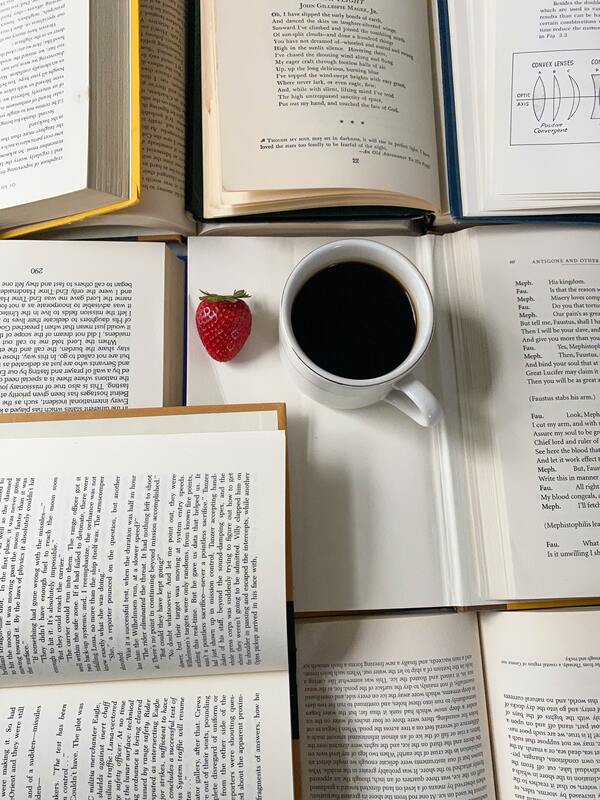
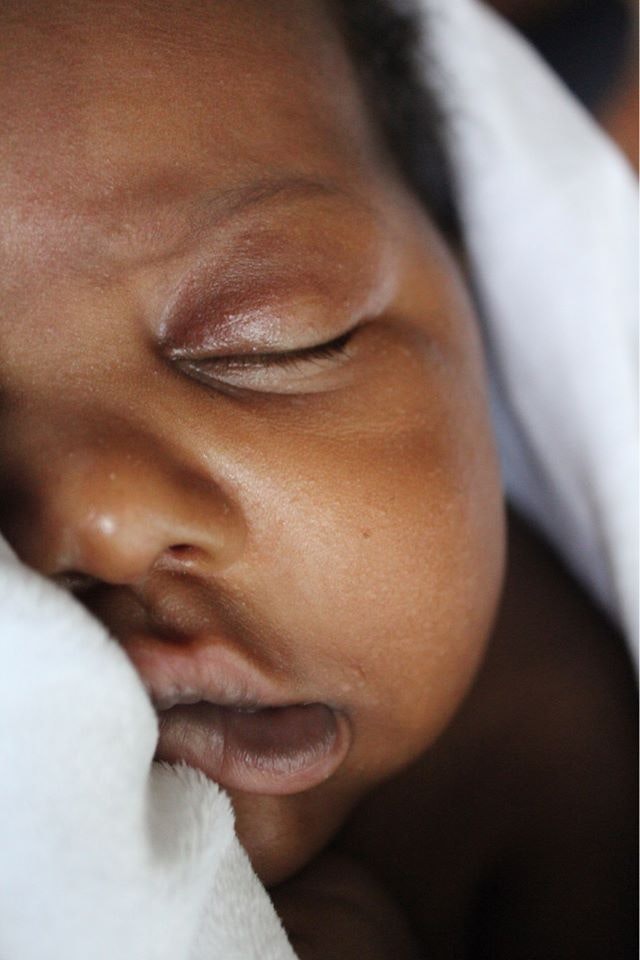

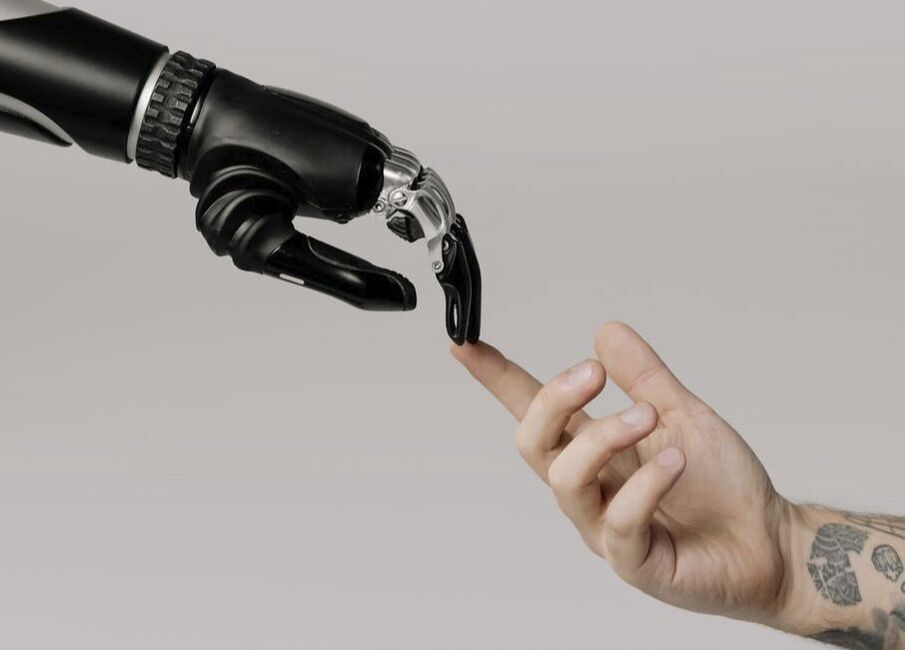
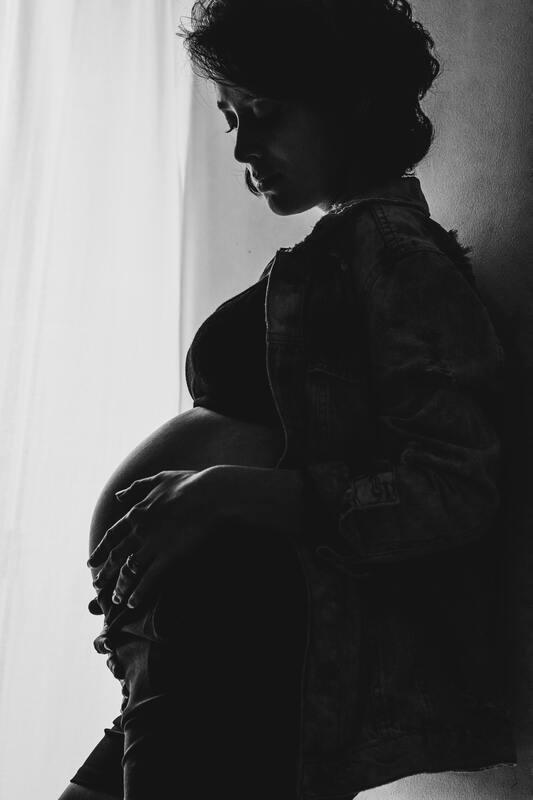
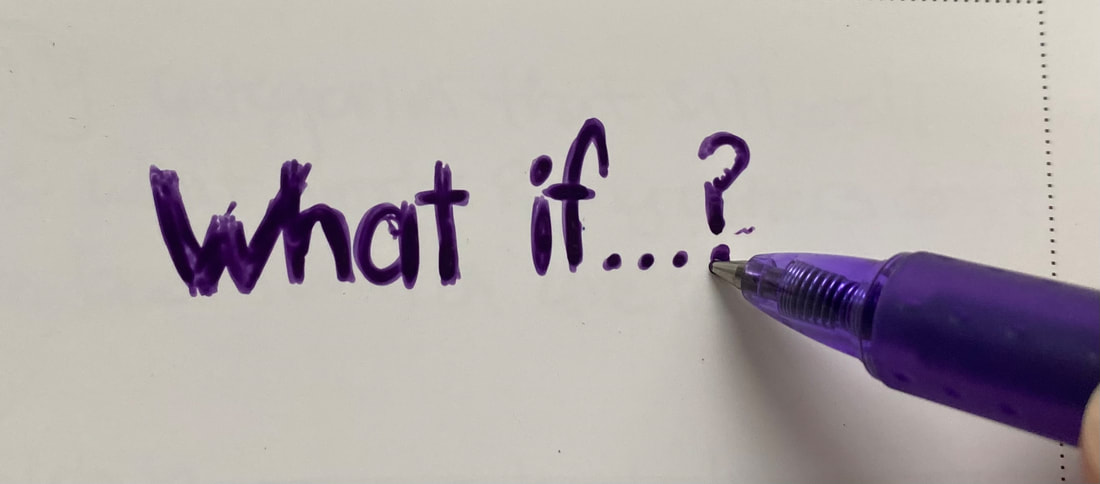
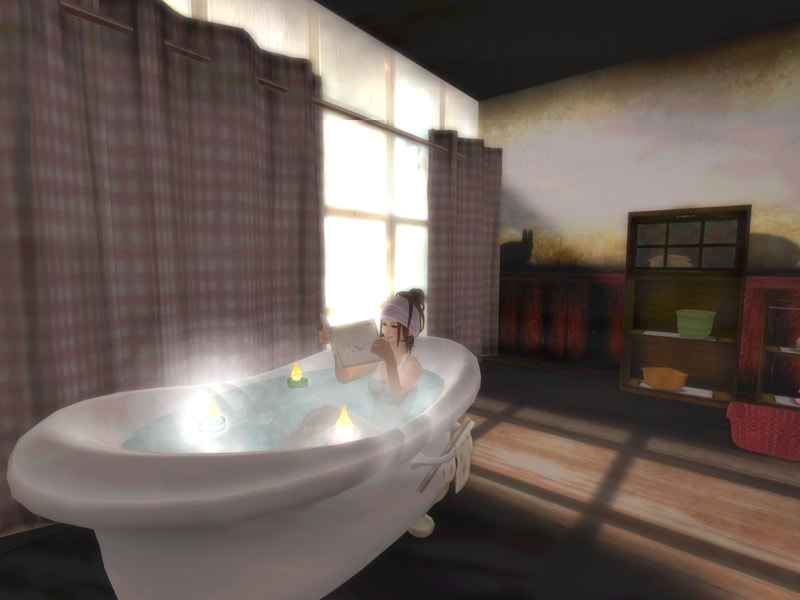


 RSS Feed
RSS Feed